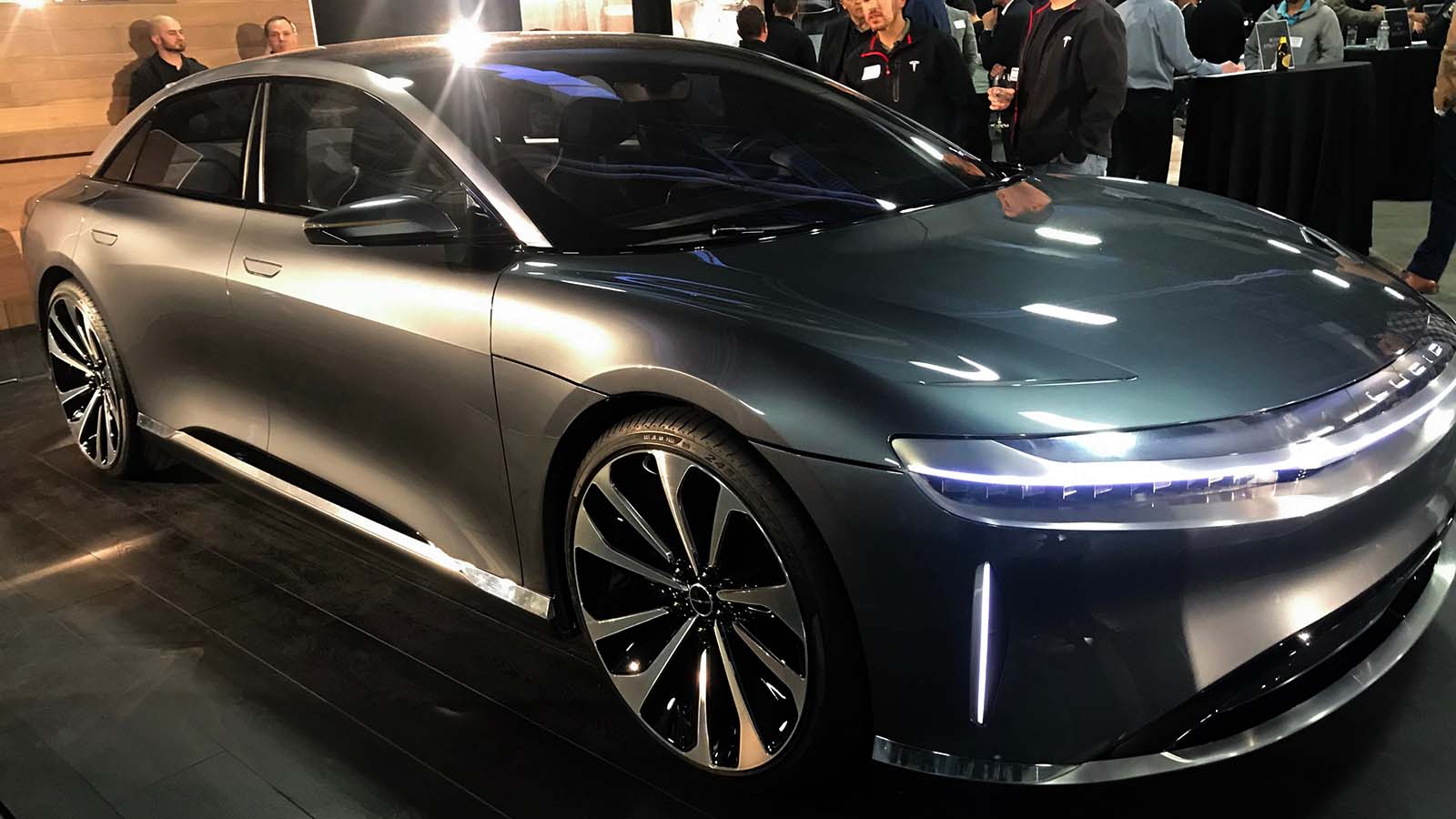I have good news and bad news for the owners of Lucid (NASDAQ:LCID) stock. On the one hand, I’m pleased with the company’s decision to launch a unique electric vehicle, as I believe that being unique is one way to succeed in an extremely competitive niche. And there’s no doubt that the luxury EV sedan market, where Lucid lives, is extremely competitive.
But on the other hand, Lucid does not expect to produce the new EV until some time next year, and I would not be surprised if the company does not start delivering it until 2025. Unfortunately for the owners of LCID stock, however, the share price is likely to be way below its current level in a year or two.
Moreover, my research on Lucid this week turned up a review that, while largely positive, bodes badly for LCID stock.
Lucid’s Upcoming EV
Lucid reported last week that it’s testing its large SUV, which it’s calling Gravity. What makes the Gravity stand out is its large seating capacity. Specifically, it has three rows of seats and may be able to hold seven people.
Most other trucks and SUVs can’t hold seven people. For example, a Chevrolet Silverado truck can seat up to six people, while five people can comfortably sit in Ford’s (NYSE:F) F-150 Lightning.
Therefore, I believe that Gravity, which will sell for around $90,000, could very well be appealing for large, wealthy families looking for an EV. And the fact that it’s supposed to “have the longest range of any EV SUV” certainly won’t hurt.
Conversely, the luxury sedan EVs that Lucid is trying to sell now have to go up against many powerful brands.
And while Lucid expects to launch the Gravity next year, I’ve learned, from writing about and investing in EVs over the last few years, that production can face delays for months.
For example, another EV startup, Arrival (NASDAQ:ARVL), was supposed to begin producing its electric delivery vans in the third quarter of this year. Now that target has been postponed until the end of next year. Similarly, the production of Tesla’s (NASDAQ:TSLA) Cybertruck was previously going to take place back in 2021 and is now supposed to kick off next year.
The Not-Quite-Good-Enough Review
In my view, given Lucid’s extremely tough competition, the limited power of its brand, and its relatively small market, its vehicle have to be pretty close to perfect for the automaker to survive.
Unfortunately, the recent review that I found from Car and Driver did not quite meet that standard.
The review was mostly complimentary, but it did describe Lucid’s software interface as “a work in progress.” It noted that the vehicles’ wheels made “notable road noise on a section of coarse pavement.” Moreover, I believe that the website’s reference to Lucid as “a viable competitor for [other] high-dollar EVs” was not exactly a ringing, full-throated endorsement.
The Bottom Line on LCID Stock
Lucid’s Gravity SUV could be a game changer. But given the struggles the automaker faces, LCID shares are likely to be much lower by the time Gravity arrives.
Consequently, investors should sell LCID stock at this point.
As of the date of publication, Larry Ramer owned shares of ARVL. The opinions expressed in this article are those of the writer, subject to the InvestorPlace.com Publishing Guidelines.
